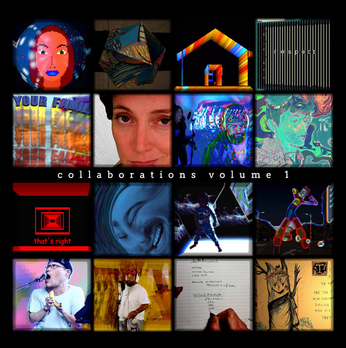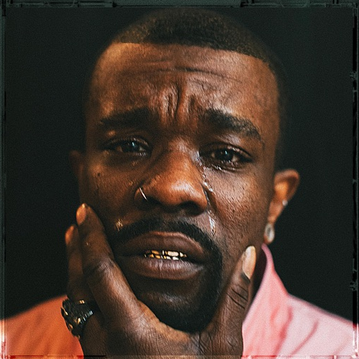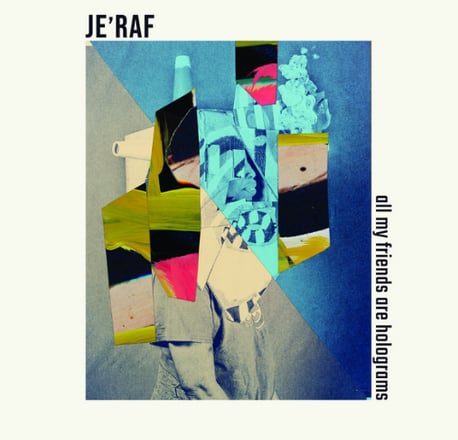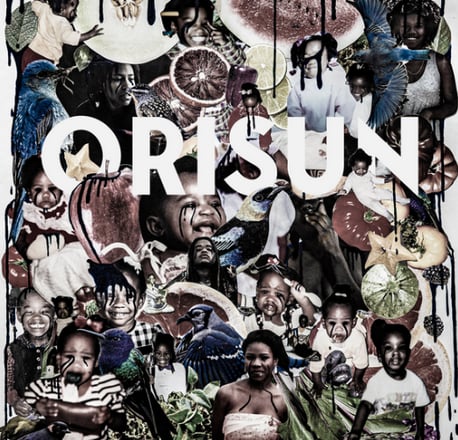Pandemic Era Chicago Music Projects that We're Still Listening to in 2025
Some of our favorite "under the radar" projects of the last few yeras
MUSICREVIEWS
5/4/202510 min read
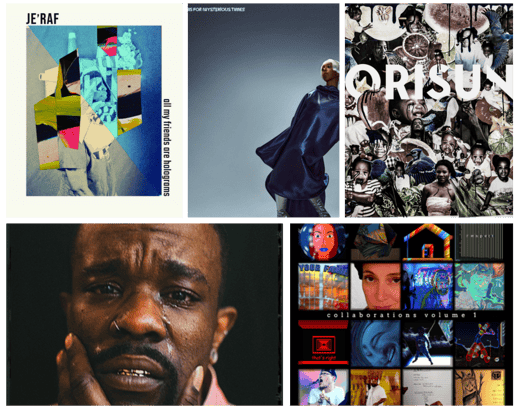

Orisun’s Viscera! album is one of those special works where each listen invokes the sound of a difference influence. There are aspects of Grunge, but less the playful and sardonicism (if that is a word...) of Nirvana and more the of the heavy, brooding angst of Alice in Chains. The rhythm section, with Kai Black recording both the bass and drums, would sound at home within the metal environment of the early aughts – but not the stuff they played on Q101 or MTV – but more like Coal Chamber or Fear Factory. The vocal work, often haunting multilayer harmonies from Asha Adisa (who also plays guitar), draws less on early 2000s metal but shares similarities with a different musical movement, namely some of the gothic and industrial legends of the 80s such as Souixsie and The Banchees or Bauhaus.
Basically, the musical aspect of the project draws upon the music and themes of some of the best alternative scenes of the last 40 years – adapting some of the characteristics that made the most distinctive bands of these movements sound ahead of their time while amalgamating it into its own new sound.
The subject matter of the lyrics touch on some bleak topics, very much aligned with the album’s stated goal of “expressing the horror of embodiment in an environment of ruin and oppression”. Despite these weighty themes, the album is less about wallowing in the pain of existential grief and more a primal yell of resilience and resolve. For example “Never Seen Before” is rebellious explosion about power of individuality and its ability to make it’s wielder impervious to the abusive pressures of society. You could hardly find better navigators of the mental corridors of defiantly rising above the quicksand of conformity. Both Asha and Kai are outspoken about their black queer/trans identity, creating music in genres that, despite being heavily influenced if not outright created within black culture, have generally been appropriated by white audiences.
Taken as a whole, the aptly named Viscera is a strongly conceived, rebellious, and fiery album. The relatively short run time and track length serves the project well as a frenetic and emotional release that leads the listener through the peaks and valleys of existence through the eyes of people who persist within, resist from, and ultimately rise above a society that is often intolerant at best and outright hostile at worst.

Collaborations V 1 Music Videos

Charlie Otto has been an intriguing musician for many years, beginning with his leading of the Talking Heads tribute "This Must Be The Band" to his plethora of multisensory creative projects that make up his solo career. Otto has long been a veteran of the Chicago music scene, with about 20 years of experience across a variety of projects ranging from This Must Be The Band, Grood Music, and DJ noDJ, and Babealon 5. The prevailing motif of all of his projects are euphonious soundscapes combining aspects of indy rock, funky electronic, and eccentric groove. His work occupies a unique space in both Chicago's music scene and the industry at large. Its a versatile sound is at once both uplifting and heavy, complex yet approachable, and distinct yet familiar.
Collaborations Volume 1 was born of the pandemic as a way to digitally connect during the period of forced isolation. Unlike many of the albums recorded during the pandemic, framed by the inherent uncertainty of the time and channeling a sort of foreboding anxiety, this project had the air of a music creator finally released from the constraints of other people’s schedules, free to explore an expanse of musical ideas. That doesn’t mean that the album is all sunshine and roses, but the heavier subject matter is often balanced with a tongue and cheek sense of humor or brevity that was unique for pieces developed at the time. For every song that asks “which is worse” between running and hiding, there is a song about potty training or a society of sentient trees.
The project pushes the genre bending boundaries through his work with a wide range of musical conspirators from a variety of disparate scenes throughout Chicago including Emcee Phenom, Vocalists Leslie Beukelman & Leslie Hunt, keyboardist Joe Re, drummer Matt Rezetko and many more visual art contributors for the accompanying music videos that support each track. Sonically, the album is much more cohesive than what one would think when working with such a broad range of collaborators, drawing upon the sounds of many of the bands Otto has payed tribute to over the years. There is certainly some homage paid to the Talking Heads, Daft Punk, with a dash of Neon Indian or Beck’s more electronic explorations a la the the Midnight Vultures album. Overall, it is an impressive project that harnesses a sagacious wisdom of both lyrics and melody that can only be imparted by a creator with such a diverse skill set at their disposal.
Experimental albums often times have a difficulty finding an audience, only years or decades in the future being identified as stewarding forward a distinct sound that permeates throughout the industry. While I could certainly see BSA Gold's "Tone Poems For Mysterious Times later garnering a cult following due to its hypnotic distorted spoken word lyrics and meditative synthesizer hits over hip-hop influenced beats, this project certainly is not so challenging that it couldn’t be appreciated by listeners of today. In fact, BSA Gold's album garnered a decent amount of local attention upon it's release in 2022, with the group headlining decent sized rooms in support of the project.
The project has a complex network of inspirations and themes that span space, sound, spirituality, and self. Attuned audiences likely would hear a plethora of just under the mainstream influences – a more experimental Solange, if Homeshake recorded his music in a UFO, Flying Lotus minus the molly, and of course Sun Ra at the height of his electronic explorations. The project often iterates on repetitive musical motifs that build and evolve throughout the song, adding and removing instrumentation and vocal effects to dynamically capture and emphasize certain melodies and phrases. Though largely digitally composed, the sparse inclusion of unadulterated vocals, flute, and acoustic drums work to juxtapose and examine the organic vs the synthetic. Baredu has continued to explore these themes by leaning into the exploration of the analogue, kinetic, and natural soundscapes like through sitting in with with Coryayo’s Sound bath performances and her work curating events at Stony Island Arts Bank and Blanc Gallery.
The unique project captures both the uncertainty of the Corona virus and lock downs and the period of rest that loomed over the world, somehow sounding exploratory, calming, and tentatively optimistic despite the foreboding atmosphere of the times.
Great art often takes time to fully digest and comprehend, with seemingly infinite examples of artists who only entered the cultural zeitgeist long after their careers ended. For every Lil Naz X that explodes onto the scene, there exists multiple musicians like Nick Drake or Shuggie Otis, masterful artists whose work took decades before it found the audience and reverence it eventually received.
Historically, this has often occurs during time of cultural upheaval, emergence of new genres, or when a band drastically departs from an established sound. The late 1960s was particularly fraught with reviewers who took some time to acclimate to the new musical environment – with multiple iconic albums being critically panned until the response from the general public proved them wrong. As bop turned into jazz fusion and pop turned into psychedelic rock, many of the trailblazers faced push back from the gatekeepers of the time – and in cases like Ornette Coleman, artists even faced physical violence for their disregard of musical norms. Bob Dylan was called “Judas” for going electric and the label head of James Brown’s first record label, “King Records” called the first music he encountered from the Soul Brother #1 “the worst piece of crap I’ve heard in my life”. Pioneering projects are almost always poorly critically received, as their greatness often needs to be evaluated in the context of the roots it plants and the works that stem from them.
As is often the case, eventually history is rewritten by the victors, and in the case of poorly reviewed music of the past, victory is driven by legions of fans packing arenas and purchasing vinyls. The paradigm of the industry today has shifted. In the past, it was often said that skills and vision would eventually supersede dismissal by the old guard of critics and labels - eventually, an artist’s talent becomes undeniable. Today, in the age of industry plants and nepo babies, its easier than ever to manufacture musical stardom through a few paid reviews and playlist placements. Additionally, the barriers to gaining virtuous skill in music composition have fallen due to factors like easily accessible music lessons and corrective DAW plugins. As of this writing, there are over 120,000 tracks uploaded to Spotify daily, surpassing the amount of music released in all of totality of the year 1989.
The challenge for independent artists has now become cutting through the noise while competing with the unlimited resources of large labels and their multi-person marketing teams. In this environment, there will naturally be great music that gets overlooked by a large portion of the general public and, even more so than in days past, there is a chance that visionary works may never find the audience they deserve. The aim of this writing is to look back on a few projects released by Chicago based artists that were unique enough to both avoid the mainstream and justify a deeper dive. The saying goes “give me my flowers while I can still smell them”, so lets moment to revisit some relatively obscure projects that deserve an audience now and will likely be very fondly looked back upon over the next few years.
Also, this was originally a “Best Albums of 2024” list but went way past the appropriate cut off date, so I expanded my scope along with my deadline.
Often times, the success of some of the most interesting music projects are betrayed by their own ambition. An embrace of multiple genres and styles can lead to innovative sonic output but stifle a bands ability to easily find an audience. Je'raf's "All My Friends Are Holograms" risks falling into this category, with their broad, experimental journey through punk, free jazz, hiphop, spoken word, soul, and progressive styles potentially being a difficult listen for those with radio oriented tastes. Yet those who are open to a deeper listening experience will be rewarded with a charged and challenging - and sometimes crass - project that has few peers in both the Chicago music scene and the industry at large.
Consequently, its difficult to really think of bands with comparable sound without dipping into history. There is certainly some Zappa and the Mothers of invention on the freewheeling musical arrangements, the delivery and themes of the lyrics by PT Bell are reminiscent of D. Boone of the Minutemen, and the more melodic moments with Brianna Tong - as well as their vacillation between experimental explosions of sound and traditional consonance - sometimes sound like a Haitus Kaiyote macrodosing (yes MACRO) session.
Overall, the band approaches everything - from lyrics that tackle heavy themes, to the very idea of harmony and synchronization - with a playful voraciousness that embodies the coolness of not giving too much of a fuck. Consequently, its almost easier to describe the vibes of the project than the actual music, in that it feels akin to laughing in the face of the cops while they try to put you in handcuffs.
While authenticity has long been an important aspect of the rap music scene, vulnerability has largely been disregarded in the place of hubris and machismo. In that sense, Reality Raps is a singular project – a concept album that imagines the CantBuyDeem in a therapy session where he intimately explores trauma, insecurity, trust, identity, ego, and the reality of being a creator that bucks most of the preconceived notions of the industry. Many of the songs are primed through that lens, a candid discussion with a DXTR Spits playing the therapist that gives insight into the ethos behind each subsequent composition.
Getting this deep into ones psyche is bound to explore some dark corners, and this project doesn’t shy away from those dim alcoves of the mind. But with each examination of a a difficult topic like betrayal, there is also a sense of acceptance, both of the self and the world it resides in. The project’s weighty subject matter is bolstered by its lucidity - though wordplay and figurative language that are so intrinsic to hip-hop exist throughout the project – the direct lyrics are both unambiguous in their intent as well as faithful in their mimicking of the format of a therapy session - or even human thought in general. That doesn’t mean the concepts aren’t complex, as the album also touches on the multifaceted and contradictory nature of beliefs vs actions or morality vs success.
The production of the project is as wide ranging and diverse as the lyrics. There are flutes, screaming guitar, and flipped pianos, nestled between the typical heavy low end bass and high hat trap rolls that are ubiquitous in today's hip hop. It all combines to create a manic sensibility that alternates between unease and euphoria. In totality with the lyrics that reference his home neighborhood of Englewood and collaboration with a ride range of local lyricists, its a thoroughly Chicago project that ambitiously and successfully embodies the heart of the second cities influence on a creator’s psyche.



Je'raf Live Performance on Puddle Splashers
MoneyCan'tBuy Deem live on Musicon3
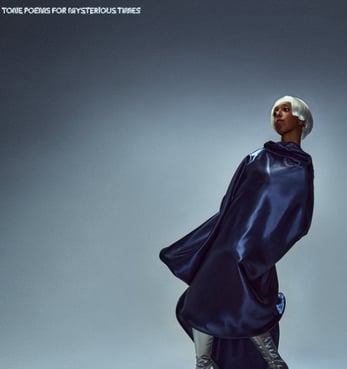

Orisun Live Performance
BSA Gold - Trust The Order Music Video
